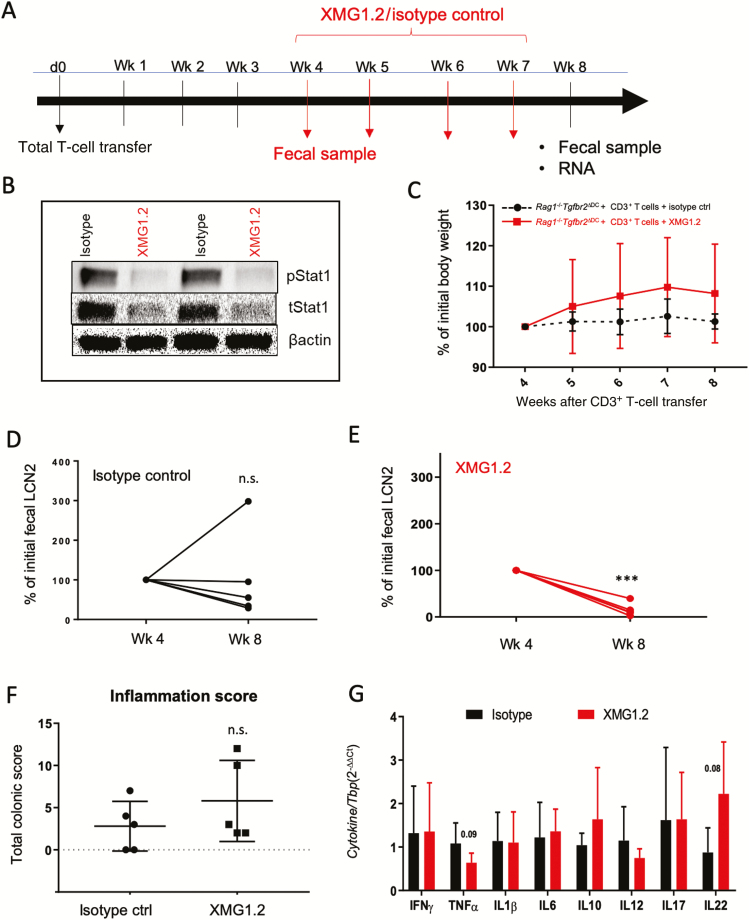Figure 6.
IFNγ modulates inflammatory response in adoptively transferred Rag1-/-Tgfbr2ΔDC mice. A, Cartoon depiction of the experimental design with the timing of adoptive T-cell transfer, antibody injection, death, and tissue collection. B, Western blot analysis of colonic pSTAT1 and total STAT1 expression demonstrated the effectiveness of IFNγ neutralization. Representative blot from 2 mice in each experimental group. C, Weight loss curve in adoptively transferred Rag1-/-Tgfbr2ΔDC mice treated with isotype control or XMG1.2 antibody. D–E, Differences in fecal LCN2 concentration between the fourth and seventh weeks of the study as determined by ELISA (ng/mL/g). Due to varying inflammatory responses in mice at 4 weeks post-transfer, data were expressed as change relative to the initial LCN2 level at the onset of treatment. The paired t test was used to analyze data: ***P < 0.0005. F, Histological inflammation scores were assigned to the proximal and distal colon, and their sum was used as a total colonic score. G, qPCR analysis of colonic mucosal expression of selected cytokines in the 4 experimental groups. Data were analyzed using the 2-∆∆CT method with TBP used as a housekeeping gene. The unpaired 2-tailed t test was used to analyze the data. Only trends were observed without reaching statistical significance.

